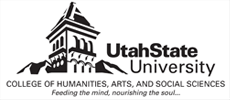Abstract
This paper considers the relevance of The Power of Myth to the secular study of religion. First, I identify the scholars from whom Campbell borrows concepts. I organize these scholars into three groups – the qualitative religious scholars, the quantitative religious scholars, and those who draw from both approaches. Next, I identify Joseph Campbell’s key ideas (the monomyth, the hero’s journey, the existence of a higher power or energy, the lack of myth in the modern world, and the notion that religion possesses given qualities). I then analyze the contradictions inherent within Campbell’s argument, for Campbell fails to synthesize three scholarly traditions into one coherent theory of religion. Additionally, I discuss Campbell’s descriptive reductionism, his reactionary views regarding secularization, and the political conservatism found within the book. I conclude that Power is not an authoritative work of secular religious scholarship, but rather one man’s subjective blend of research and personal beliefs.

